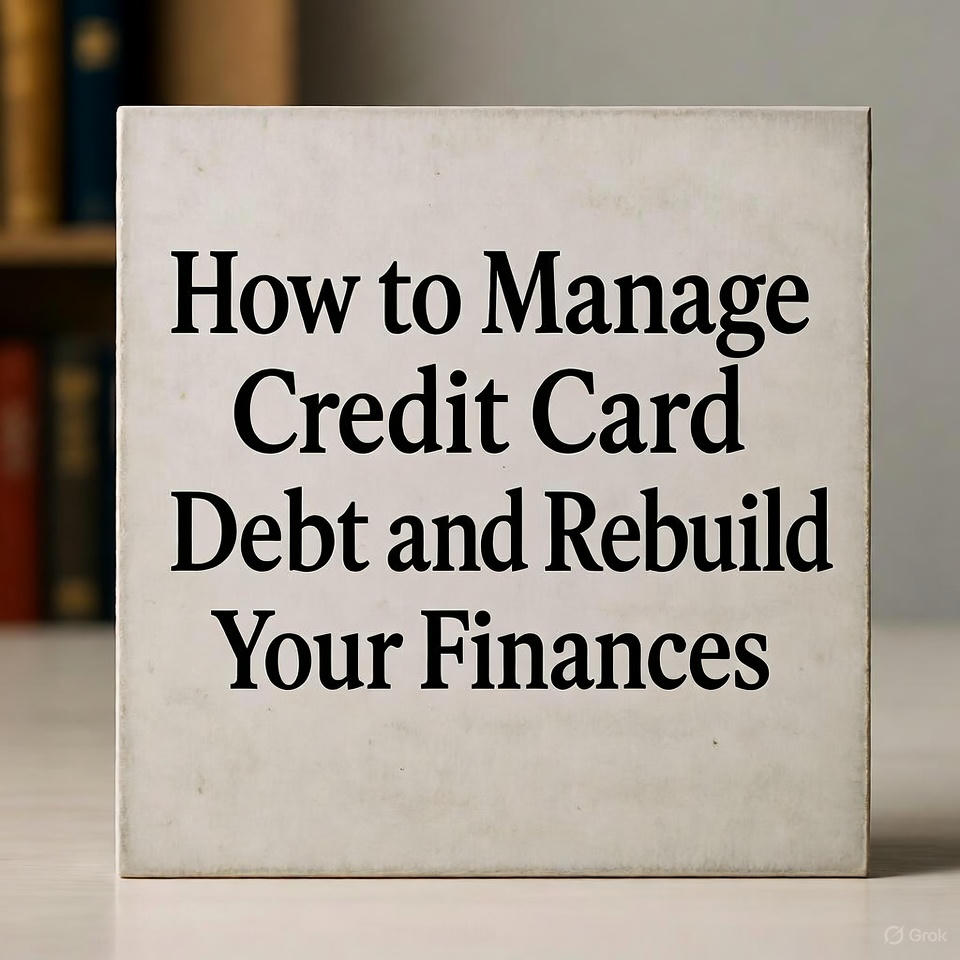Credit cards make life easier, until they don’t. A few missed payments, rising interest, and what was once convenient starts to feel like quicksand. Debt builds quietly, and by the time the balance feels unmanageable, many people think they have no way out. The truth is, the system has rules, and those rules include ways to recover.
What Credit Card Debt Really Is?
Credit card debt isn’t just a number on a bill. It’s borrowed money that keeps growing as long as part of it remains unpaid. Every month the bank adds interest, and most of the minimum payment goes to that interest instead of the balance. The result is familiar: payments go out, but the amount owed barely changes.
It’s not always about overspending. Sometimes it’s illness, job loss, or just bad timing. Understanding that helps replace shame with planning. The first smart step is to see the problem clearly. Write down each balance, the rate, and the payment due. Once the full picture is visible, decisions start to make sense again.
How Credit Card Debt Elimination Works?
When people look for credit card debt elimination, they often expect one simple fix. There isn’t one, but there are solid routes forward. Negotiating with lenders can lead to reduced interest or a payment plan. Credit counseling agencies can combine several cards into one manageable payment.
If the balances are too high to maintain, bankruptcy becomes a legal tool worth considering. Chapter 7 wipes out most unsecured debts, including credit cards, if income and assets qualify. Chapter 13 allows partial repayment through a structured plan approved by the court. Both stop lawsuits, wage garnishment, and collector calls as soon as the filing occurs.
Bankruptcy may sound like defeat, but it’s the opposite. It’s a federal protection meant to give people breathing room. Once the pressure lifts, rebuilding becomes possible again.
Rebuilding After Debt
After the dust settles, progress starts small. A simple budget shows where money goes and what can change. Cutting small recurring costs, like unused subscriptions or impulse purchases, makes a real difference. Using cash or debit for everyday spending helps avoid falling back into debt.
Rebuilding credit takes time, but steady effort works. A secured card with a low limit, paid in full each month, sends a strong message to lenders. Saving even small amounts builds security for the next emergency. Checking credit reports a few times a year prevents mistakes from holding progress back.
Recovery isn’t about perfection. It’s about replacing reaction with control. Once spending habits shift, the confidence to plan returns.
Why Legal Help Matters?
Collectors sometimes push boundaries. The Fair Debt Collection Practices Act makes harassment illegal, but many consumers don’t know it. Calls after hours, threats, or false statements can be reported and stopped. Legal advice ensures those rights are used, not ignored.
When debt problems escalate, legal support can transform the situation. Attorneys who specialize in consumer protection help negotiate fair terms, stop unlawful collection tactics, and guide clients through bankruptcy if it becomes necessary. That intervention replaces uncertainty with order and gives people room to focus on recovery.
Finding Stability Again
Debt doesn’t have to define anyone’s future. What matters is taking the first practical step, no matter how small it feels. Whether it’s consolidating payments, settling accounts, or filing bankruptcy, every action toward order is a move toward relief.
The law exists to give people a second chance. With persistence and guidance, that chance turns into lasting stability and peace of mind.




